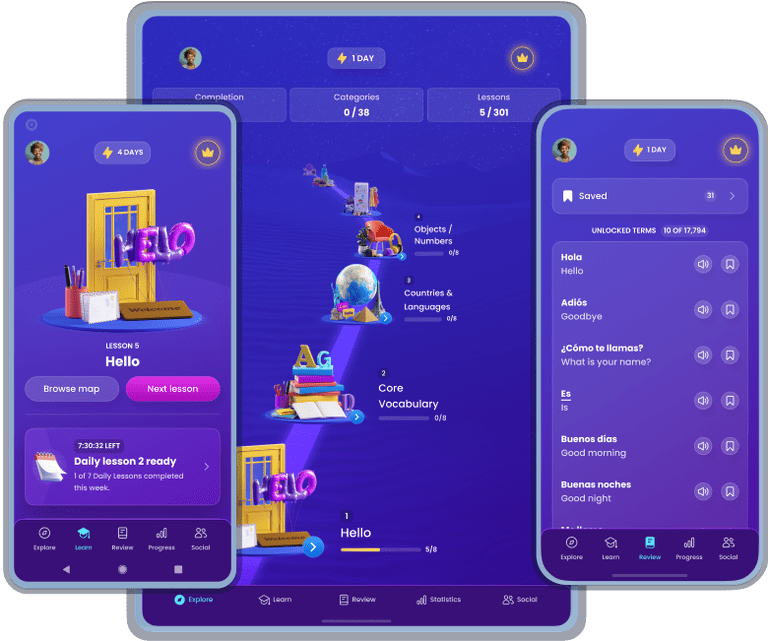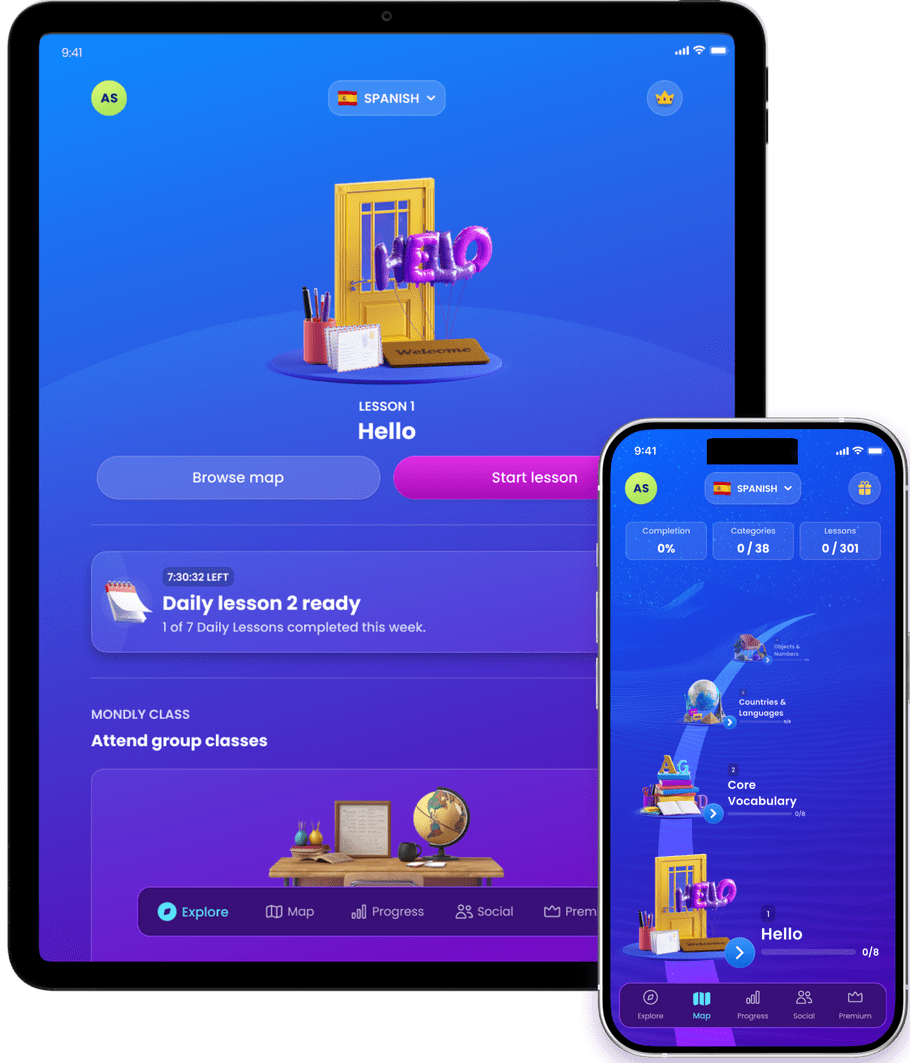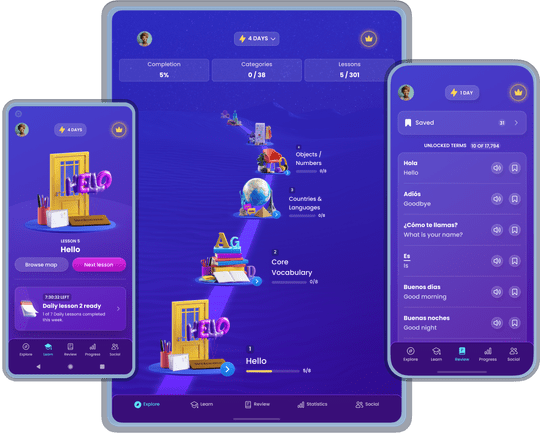German grammar rules to get you one step closer to fluency
German grammar. Why learn it?

German grammar exercises can be fun

Inside the app, you will find 3 different sections dedicated to learning the German grammar online. Each section consists of 7 or 8 grammar lessons that take around 5 minutes each to complete. Every lesson introduces German grammar exercises where you read, listen to natives, write and speak. Rooted in science, our exercises are specifically created to keep you engaged and make learning German as easy and fun as possible.





1 000 000+ + Ratings
Mondly was named "Editors' Choice" in Google Play and "Best New App" by Apple.
German grammar rules

● Just like in English, German verbs usually come second in a sentence. For example, ‘I love you’ in German is Ich liebe dich. Notice how the verb liebe (‘to love’) takes the second place after the subject (I or Ich).
● German nouns (words that name people, things and places) are always capitalized. If you have ever studied a German text before, you may have noticed capitalized letters in the middle of the sentence. For instance, in Ich liebe den Sommer (‘I love summer’), the capitalized noun is ‘summer’.
● Unlike English, the German language has three genders: feminine, masculine and neuter. While in English we use ‘the’ to articulate all nouns, German uses 'der' to articulate masculine nouns, 'die' for feminine nouns, and 'das' for neuter nouns. Thus, you will say der Mann (‘the man’ – masculine), die Frau (‘the woman’ – feminine), and das Kind (‘the child’ – neuter).
● German adjective endings must agree with a noun’s gender and case. So genders and cases determine not only definite articles but also the ending of any preceding adjective. For example, although the German equivalent for ‘beautiful’ is schön, to say ‘a beautiful woman lives next door’, you have to add an extra ‘e’ to schön to mark the feminine noun in the nominative case: eine schöne Frau wohnt nebenan.
● The German language uses multiple ways to form plurals. Some common plural endings you will recognize in German are -e, -er, -en, -n, and -s. For instance, the plural of der Hund (‘dog’) is die Hunde (‘dogs’).

Most common German grammar mistakes

● Incorrect use of der, die and das. In German, it’s quite challenging to associate different genders and their respective article with what you might think should be neutral objects. For example, der Löffel (‘a spoon’) is masculine, die Gabel (‘the fork’) is feminine and das Messer (‘the knife’) is neutral.
● Misuse ich and mich. The incorrect use of ‘I’ and ‘me’ can also happen in German. It’s wrong to say Du liebst ich (‘You love I’). Instead, you should say Du liebst mich (‘You love me’).
● Confuse Sie with Du and viceversa. Unlike English, German has two forms for ‘you’: formal Sie when addressing strangers or coworkers and informal Du when addressing friends and family. It’s advisable not to mix them up.
● Mix up verb endings. German has more verb endings than English and it’s easy to mix things up. Make sure to memorize verb conjugation endings and which pronoun correlates to each individual verb ending.
● Wrongly use ‘in’ when talking about a date. In German, it is possible to say something happened in a certain year in two ways, neither containing the word ‘in’. To make sure you’re using the correct grammatical form, you can either use the expression im Jahr which means “in the year of” or you can just say the year like in the following example: Ich bin 1994 geboren (‘I was born in 1994’).

Learning the German grammar with Mondly by Pearson has real benefits

The German grammar will seem easy and fun
Our linguists have created German exercises that will feel like playing a game. The catch: you absorb the German grammar effortlessly. In no time, you’ll be getting compliments from natives for your German skills.

Learn German the smart way
Instead of learning the hardest parts of the German grammar first, we take you through a journey of the most used German words and sentences. This means that you start by learning what really matters first.

Learn German with friends
Learning German can sometimes feel overwhelming. That’s why we created language leaderboards to keep you motivated along the way. Play your way to German by competing with friends and the entire world.

Get ready for real conversations in German
Every German exercise created by our world class linguists is meant to bring you one step closer to having real conversations. That’s why we created speaking exercises for you to practice the German grammar you learn.
















